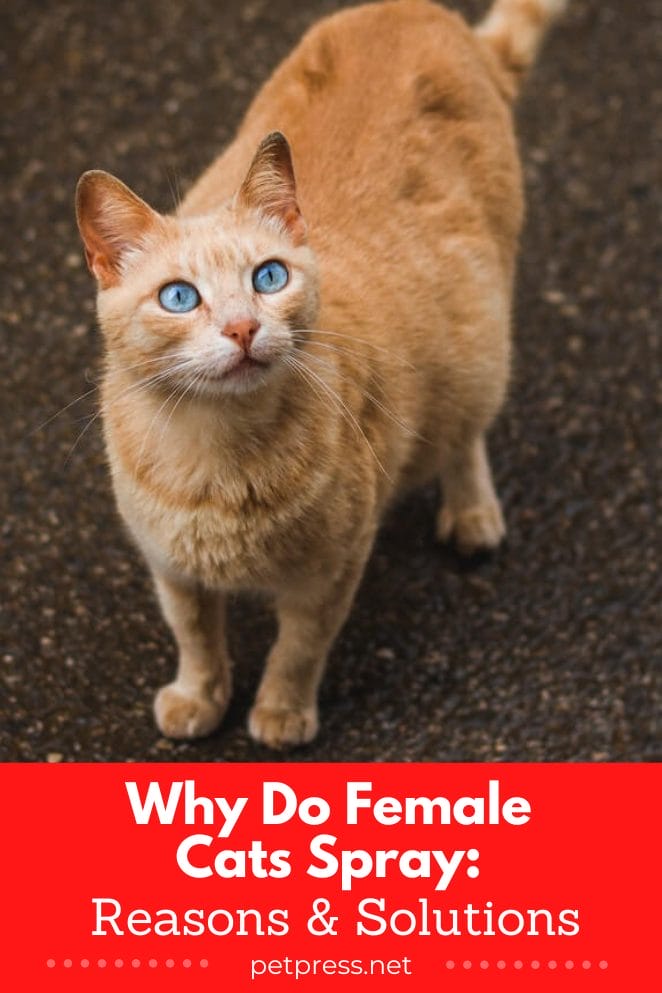
Female cats spray as a way of communicating with other cats.
By spraying, they are able to leave their scent in an area and let other cats know that they have been there.
Spraying is also a way for female cats to mark their territory.
When a cat sprays, she will usually back up to a vertical surface, such as a wall or piece of furniture, and then release a small amount of urine. The urine will usually have a strong smell.
For this, you might even need to keep cats off the counters in the kitchen to avoid any health hazards.
But a question that a lot of cat parents ask is why do female cats spray? Petpress brings to you the reasons and solutions for this feline behavior.
Why Do Female Cats Spray
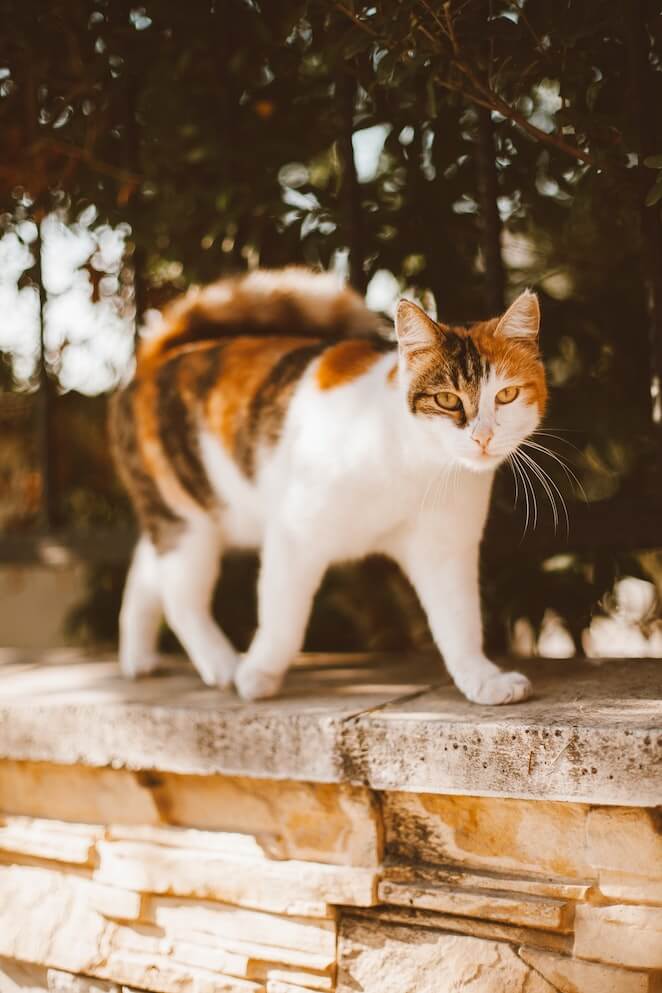
Female cats spray for a variety of reasons.
Some do it to mark their territory, while others may spray when they’re feeling stressed or threatened. Here are five common reasons why female cats spray:
1. To Mark Their Territory
One of the most common reasons for female cats to spray is to mark their territory.
When a cat sprays, they are leaving behind a small amount of urine that contains their own unique scent.
This helps them to claim an area as their own and keep other cats away.
2. To Show They’re Stressed or Threatened
Cats can also spray when they’re feeling stressed or threatened.
If there’s been a recent change in their environment, such as a new pet or baby in the home, this can trigger a need to spray.
Additionally, if there are other cats in the neighborhood that your cat doesn’t get along with, this can also lead to stress and spraying.
3. To Convey Their Mood
Cats also use spraying as a way to communicate their mood. For example, a happy cat may spray when they’re excited or playful.
On the other hand, an anxious or scared cat may spray as a way to show their fear.
4. To Get Your Attention
In some cases, a cat may spray as a way to get your attention.
This is often the case if they feel neglected or are not getting enough love and attention from you.
If you think this may be the reason your cat is spraying, try spending more time playing with them and giving them lots of love and affection.
5. To Serve as a Warning
Cats also spray to serve as a warning to other animals.
If another animal comes into their territory, they may spray to show that they’re not welcome.
This is especially common among outdoor cats who are trying to protect their turf from other neighborhood cats.
How do you stop a female cat from spraying?
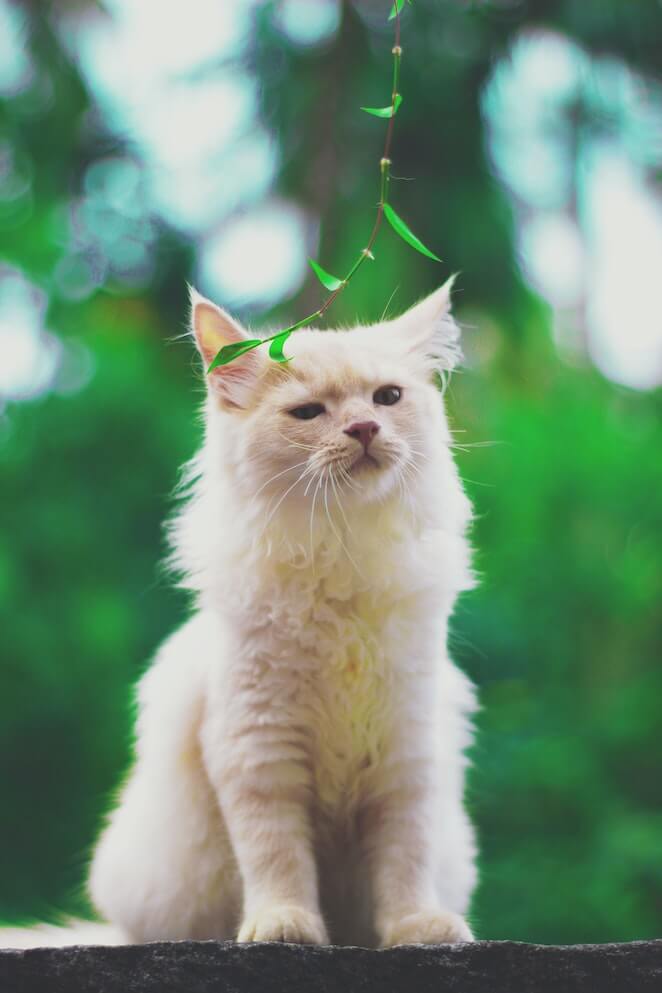
If you’ve ever come home to the smell of cat urine, you know how frustrating it can be. Not only is it unpleasant, but it can also be difficult to get rid of. If your female cat is spraying, there are a few things you can do to stop it.
1. Spay her: This is the most effective way to stop a female cat from spraying. When a cat is spayed, her uterus and ovaries are removed, which eliminates the hormones that trigger her to spray.
2. Keep her indoors: Indoor cats are less likely to spray than outdoor cats because they don’t have the same territorial instincts. If your cat does go outdoors, make sure she has a litter box inside so she doesn’t feel the need to mark her territory.
3. Clean the litter box regularly: A dirty litter box can be a major source of stress for a cat, which can lead to spraying. Be sure to scoop it out at least once a day and change the litter completely every week. You can check out the different types of cat litter that suit your cat’s requirements.
4. Provide plenty of vertical space: Cats like to climb and perch, so giving them plenty of vertical space will help satisfy their instinctual needs. This could mean putting up shelves or cat trees for them to climb on.
5. Give her attention and affection: A spraying cat is often one who feels neglected or stressed. Spend time playing with her, petting her, and giving her the attention she needs. If you do all of these things, you’re likely to see a reduction in spraying behavior.
Do indoor cats spray?
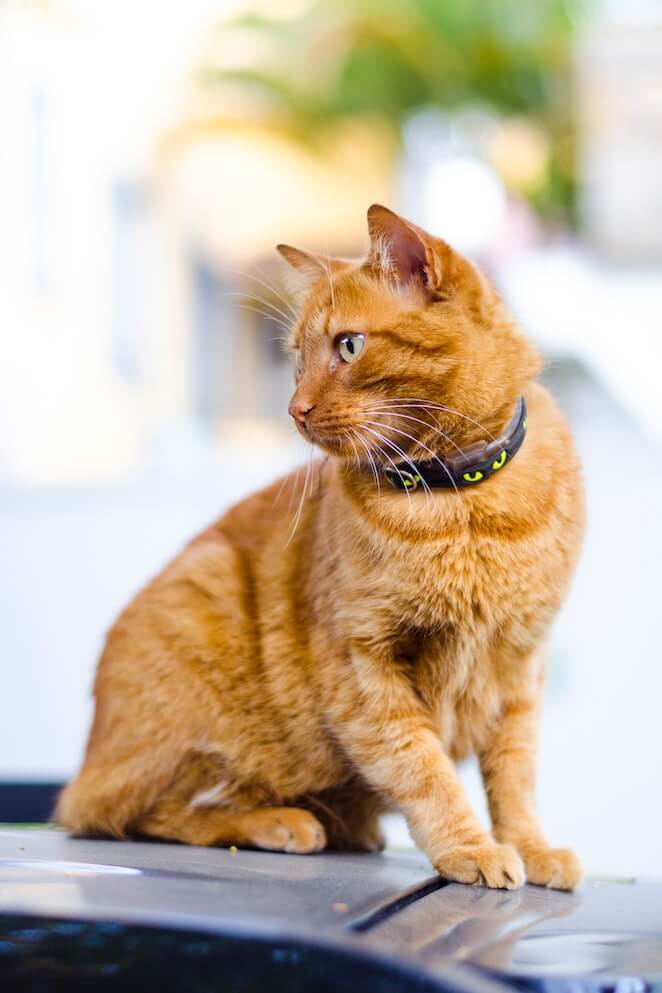
It’s no secret that cats can be fickle creatures.
One minute they’re rubbing up against you and purring contentedly, and the next they’re hissing and scratching at anything that comes near them.
So it’s no surprise that many cat owners find themselves wondering: do indoor cats spray?
The answer, unfortunately, is a resounding yes.
While there are a number of reasons why your kitty might start spraying around your home, the most common cause is simply stress.
Cats are very sensitive creatures, and even small changes in their environment can trigger a bout of spraying.
What age does a female cat start spraying?
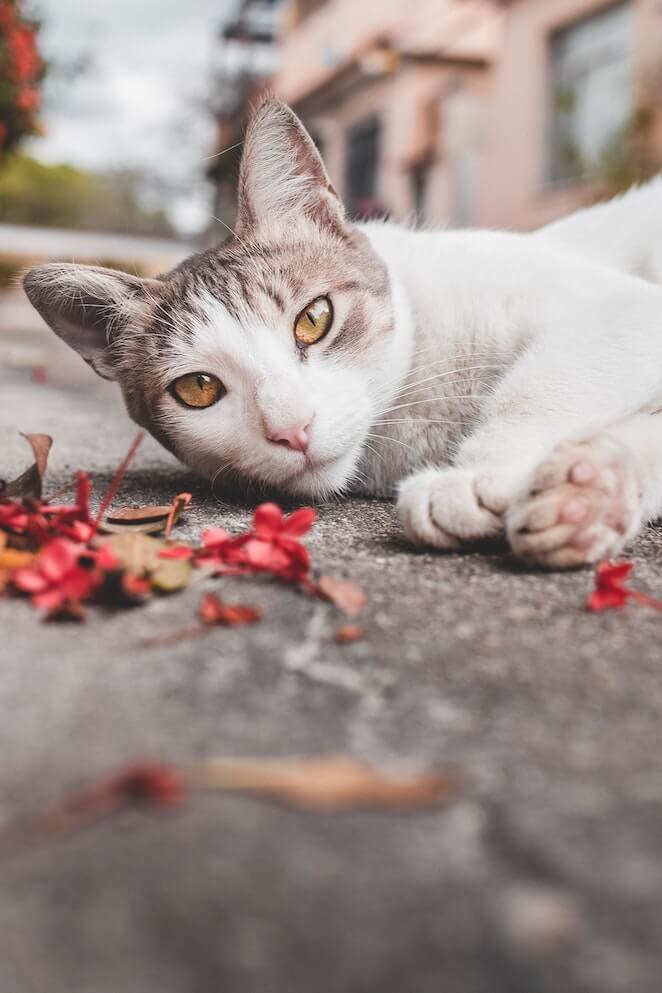
A female cat’s spraying behavior usually starts around the time she reaches sexual maturity (6-9 months of age). However, some cats may start sooner or later than others.
If your cat suddenly begins spraying, it could be due to stress or a change in her environment.
For example, a new pet in the house or a move to a new home could trigger this behavior.
If you’re not sure what’s causing your cat to spray, it’s best to consult with your veterinarian.
They can help you determine if there’s a medical issue that needs to be addressed or if your cat is simply feeling stressed.
Conclusion
Cats are wonderful, loving creatures.
But if your feline friend starts spraying urine around your home, it can be a real nuisance.
Luckily, there are a number of things you can do to stop your cat from spraying.
By understanding the causes of this behavior and taking steps to reduce stress in your cat’s life, you can help put an end to the problem.
- 7 Dog Breeds With Webbed Feet And Why Do They Have Them - July 19, 2023
- 10 Best Fish For Small Tanks That Make Perfect Pets - July 18, 2023
- How to Breed Guinea Pigs: A Detailed Guide - July 17, 2023


GIPHY App Key not set. Please check settings